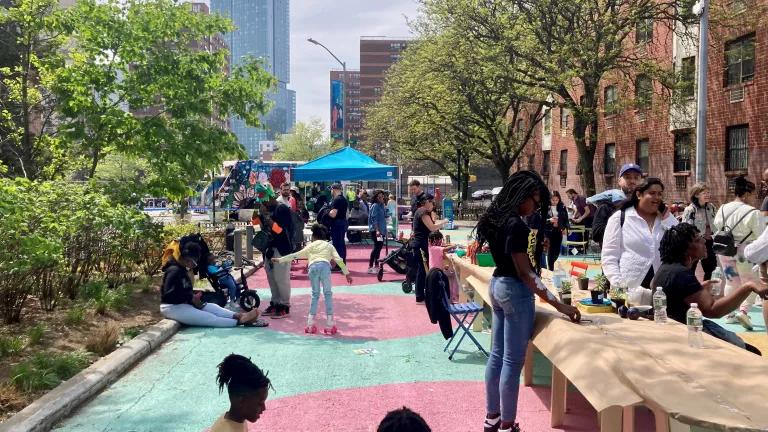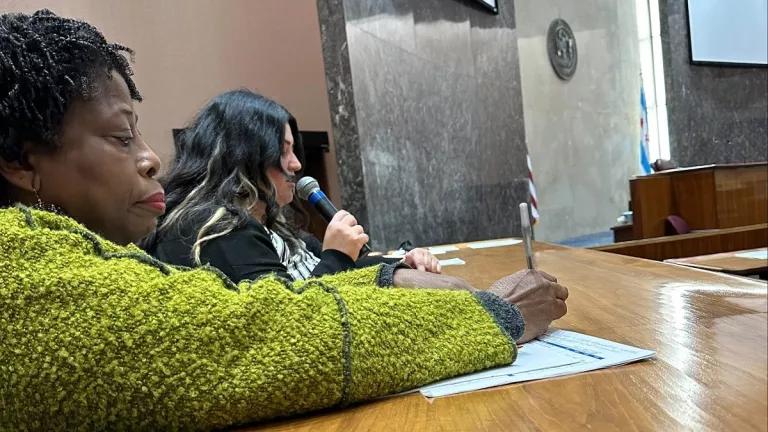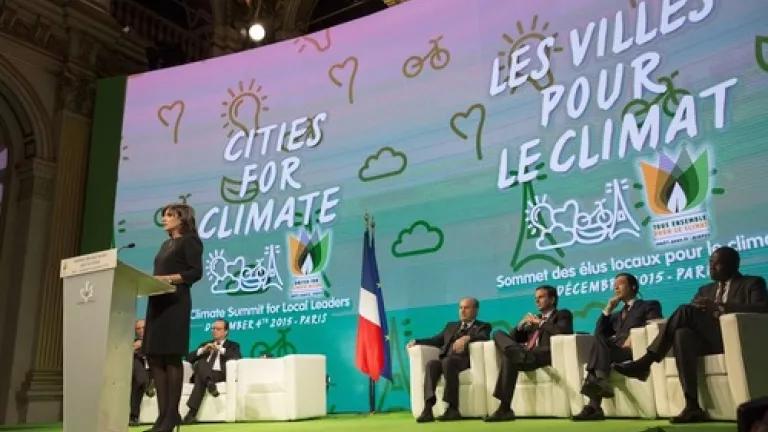
It has been an incredible few days in Paris, with mayors and other "subnationals" showing at COP21 that they are ready to make measurable impact. The sense of urgency among the local implementers of a climate agreement is palpable. In virtually every session I've attended - both in Paris and at nearby Le Bourget - speakers aren't quibbling about whether cities have a role in solving climate change but actively plotting how to best leverage that important role - and fast.
Mayors and cities have received unprecedented attention and visibility in Paris, and for good reason -- local leaders understand that the same actions that will cut carbon pollution will also make their cities stronger, more resilient and more just.
Some highlights from our Urban Solutions Team:
- City of Paris/Bloomberg Philanthropies Host Local Leaders Summit: Paris Mayor Anne Hidalgo hosted over 500 mayors from around the globe last Friday to celebrate their commitments to fighting climate change while growing economic opportunity in their communities. We learned that at least one-third of the carbon budget remaining to stay under 2 degrees Celsius is in the control of cities and local governments. That's enormous power (and real responsibility). Global leaders - Francoise Holland, Elon Musk, Michael Bloomberg, Mayor Eduardo Paes of Rio de Janeiro, Leonardo DiCaprio, Al Gore, Robert Redford and many others -- were on hand to urge the attendees to accelerate and scale their work so that the great economic potential of fighting climate change can be realized.
- Urban Solutions Announces City Energy Project Phase 2: NRDC and IMT, partners in the City Energy Project (CEP), announced Friday that we will be expanding our work in early 2016. This commitment, supported by the Bloomberg, Kresge and Duke foundations, represents a new $10 million investment in proven strategies to drive down energy use in existing commercial buildings -- a critical need if we are going to hit the targets set by President Obama in these negotiations. The expansion of the City Energy Project comes after nearly two years of a successful launch in 2014 in which 10 cities in the U.S. committed to a united effort to significantly boost energy efficiency in their buildings. The previous combined action is expected to lower energy bills by nearly $1 billion annually and cut carbon pollution on a scale equivalent to that generated by over 1 million passenger vehicles every year. The announcement of the new phase came from renowned actor and environmentalist Robert Redford, an NRDC trustee, and garnered international press coverage from Politico, the Associated Press and other news outlets.
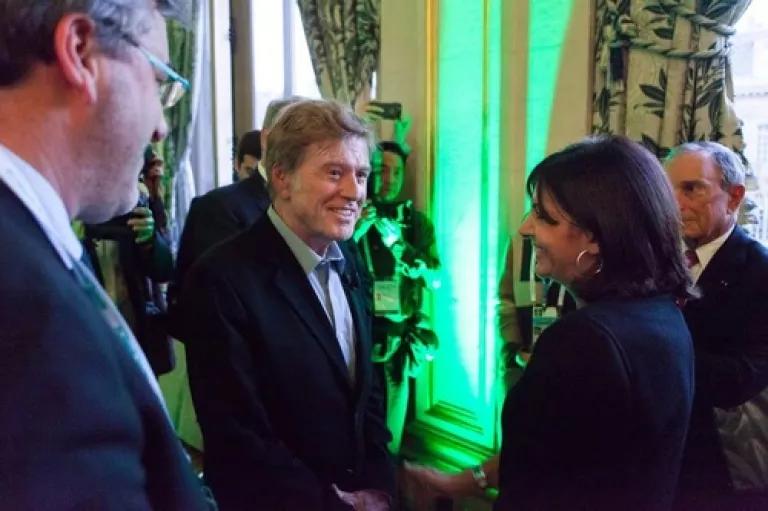
- The Role of Cities in Reaching Global Climate Goals: Urban Solutions, along with the Children's Investment Fund for the Future (CIFF), ClimateWorks and AECOM hosted a stimulating conversation among foundations, government officials and NGOs on the role of cities in meeting our climate goals. As Mark Watts, executive director of C40, said, "There is a massive buzz about cities. Irrespective of a global agreement, action at the local level is unstoppable." A central takeaway is acknowledgement that we need to focus on the human aspect of climate change and prioritize climate actions that benefit people and advance social equity. We'll be following up with this emerging network in the new year.
- Green Bank Network Announced: A coalition of green banks, including the UK Green Investment Bank, the Connecticut Green Bank, NY Green Bank, the Green Fund (Japan), Malaysian Green Technology corporation and the Clean Energy Finance Corporation (Australia) announced Monday that NRDC and the Coalition for Green Capital (GCC) have been selected to host a new learning network to help meet the urgent need of increasing and accelerating investment in renewable energy, energy efficiency, resilient infrastructure and low carbon transportation technologies. The Green Bank Network (GBN) will support information exchange, facilitate standardization of products and metrics, and identify barriers to deploying an expected $40 billion in capital over the next five years. ClimateWorks has provided seed funding for GBN.
Bloomberg, the former mayor of New York and the United Nations secretary general's special envoy for cities and climate change, released a report on Friday that said cities could be the key to closing the gap between what countries have promised to do and what is needed to avert a dangerous temperature rise.
That would mean tough standards for energy efficiency in city buildings, citizen participation through energy efficient homes and transformational transportation action.
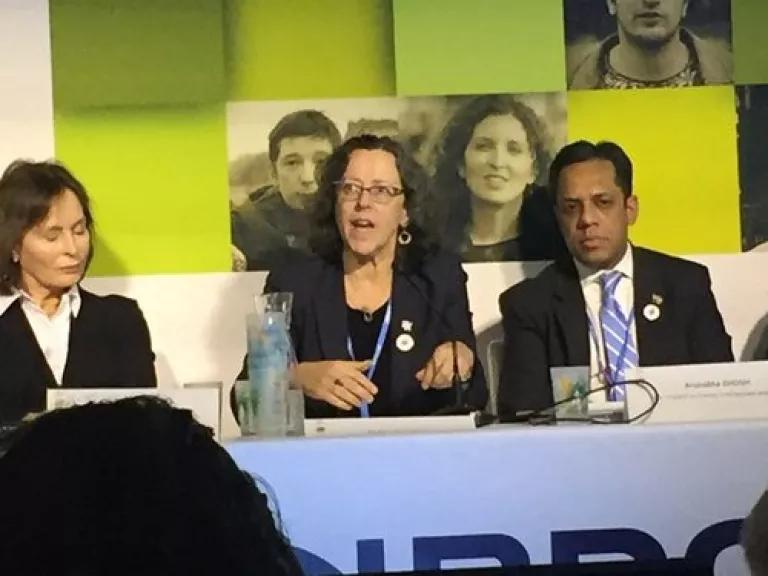
Many of these are key areas of work for Urban Solutions.
As I told Bloomberg News: Cities are centers of adaptation and innovation, and they don't have to wait for international negotiations or congressional action. When cities get it right, which they increasingly are learning to do, they advance solutions that larger and even more complex entities like national governments can adopt.
We're going to keep getting this right.


